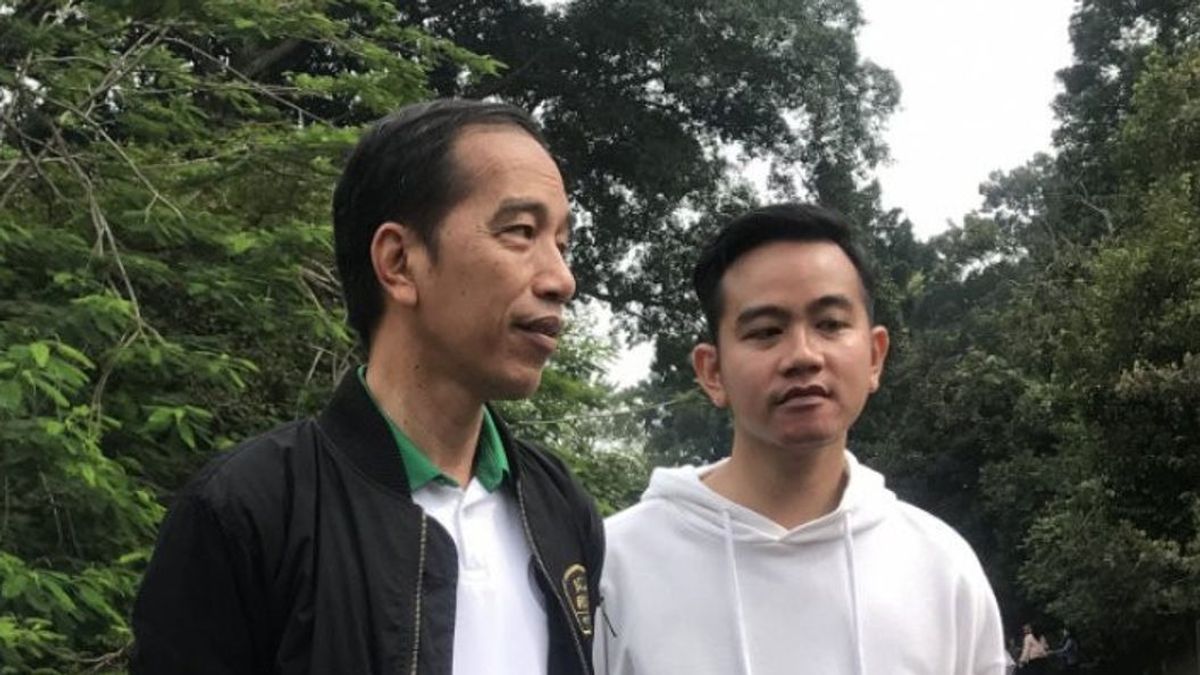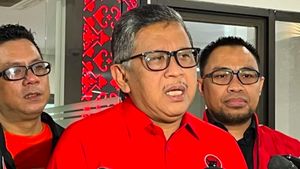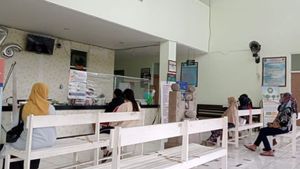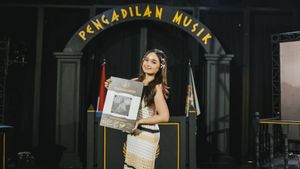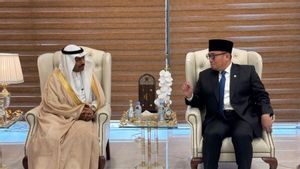JAKARTA – In October 2020, the Nagara Institute research institute announced the results of their latest research on dynastic politics in the 2020 Regional Elections.
In the research, 124 regional head candidates were known to be exposed to political dynasties. The details, 57 candidates for regent and 30 candidates for deputy regent, 20 mayoral candidates and 8 candidates for deputy mayor, as well as 5 candidates for governor and 4 candidates for deputy governor.
Of the 124 candidates for head of the region if gender classified, there are 67 men and 57 women.
"Out of the 57 women, there are 29 female candidates who are wives of the previous regional head," said Nagara Institute researcher Febriansyah Ramadahan, quoted by VOI from the Nagara Institut's official website, Tuesday, April 6, 2021.
So, what is dynastic politics, and what is the case in Indonesia?
Understanding dynastic politicsSimply put, dynastic politics is an attempt to direct the regeneration of power for certain vested interests in order to gain or maintain power in a country.
The word "dynasty" itself in the Great Dictionary of The Indonesian language is interpreted as a descendant of the reigning kings or all who come from one family. Because politics in Indonesia adheres to a democratic system, and not a kingdom or monarchy, the term dynastic politics arises.
Quoted from Historia, Tuesday, April 6, 2021, Gajah Mada University Historian Sri Margana said that dynastic politics in Indonesia is not just a phenomenon, but also a tradition.
The tradition originated from the culture of feudalism in the archipelago which also adheres to patrimonialism.
Patrimonialism itself is a term to refer to a government regime in which the power of the ruler depends on the ability to maintain the loyalty of the group's elites.
"Indeed the political culture leads to it, the father's lineage takes precedence. Almost all kingdoms in Indonesia apply this tradition, including from hindu, Buddhist, and Islamic times," margana said.
According to him, there is a chasm between the path of democratic politics chosen by the Indonesian nation in modern times and the culture carried by the people who run it. This culture, margana continued, is not easily lost.
"The theory can be presented, the institution can be formed, but the person who fills in the institutions that also exercise that power, the culture is still feudal," he explained.
Dynastic politics is like a double-edged knifeSemarang Political Science Association (AIPI) administrator Pudjo Rahayu Rizan called the political dynasty like a double-edged knife. Why is that?
Because on the one hand, dynastic political practice deprives others of the right because it has the potential to use improper means that violate democratic principles and human rights.
Meanwhile, on the other hand, the prohibition against someone who has the right to be elected will run for regional head incidentally part of a particular political dynasty, also violating one's political rights, thus contrary to democratic principles, quoted from Antara.
On that basis, the Constitutional Court (MK) considers the prohibition to be contrary to the constitution as political dynasty is permitted through the decision of MK No.33/PUU-XIII/2015. The prohibition of certain families to run for office is contrary to Article 28J Paragraph (2) of the 1945 Constitution.
Dynastic politics is not banned in IndonesiaCoordinating Minister for Political Law and Security (Menko Polhukam) Mahfud MD, on one occasion once argued that there is no rule of law or constitution that prohibits relatives of public officials to advance in regional head elections (Regional Elections).

He assessed that dynastic politics was part of the practice of nepotism. Even so, it is inevitable.
"We mostly don't like nepotism, but we have to say, there is no legal path or constitutional path that can prevent that person from running for office based on nepotism or even a family system," Mahfud said in the Local Democracy Election and Consolidation Webinar on Saturday, September 5, 2020.
He added that he had never found a country that prohibited its citizens from running in elections simply because he was a relative of a public official.
After all, says Mahfud, not always dynastic politics or nepotism is intended to benefit their factions or families.
The former Chairman of the Court gave an example, in Bangkalan, Madura, there was once someone who wanted to run for Regent because he felt his brother who was in office was not good.
The person, continued Mahfud, wanted to run for election not because he wanted to make a profit, but to improve the district after being led by his brother who was considered less capable.
"So not necessarily nepotism people's intentions are always so ugly but more than that," Mahfud pointed out.
Examples of dynastic politics in Indonesia1. President Jokowi's son and son-in-law run for election in 2020
One example of dynastic politics that once graced the timeline of online media is the advancement of President Joko Widodo's first son, Gibran Rakabuming Raka as a Candidate for Mayor of Solo. Meanwhile, his son-in-law, Bobby Nasution, elected as a Candidate for Mayor of Medan.

In Solo, Gibran who paired with Teguh Prakosa won decisively by winning more than 90 percent of the vote over independent candidate Bagyo Wahyono-FX Supardjo.
The victory was also achieved by Bobby who was paired with Aulia Rachman. They won 53.45 percent of the vote. While his rival, Akhyar Nasution-Salman Alfarisi received only 46.55 percent of the vote.
2. Three Families of Ratu Atut won the Banten Regional Election
Another example of dynastic politics in Indonesia is the advancement of Pilar Saga Ichsan, son of Serang Mayor Ratu Tatu Chasanah—sister of former Banten Governor Ratu Atut Chosiyah, as a Candidate for Deputy Mayor of Tangsel 2020. He accompanied Benjamin Davnie who ran as a Candidate for Mayor.
In the 2020 Pilwakot Tangsel constituency, Benjamin Davnie-Pilar Saga Ichsan received the most votes with 40.9 percent of the vote.

While the other two candidates, Muhamad-Rahayu Saraswati Djojohadikusumo and Siti Nur Azizah-Ruhamaben received 35.6 percent of the vote and 23.5 percent of the vote, respectively.
Queen Tatu Chasanah herself also fought in the 2020 regional elections. He managed to retain the seat as Mayor of Serang for a second term.
He advanced Pilwakot Serang paired with Pandji Tirtayasa and received 63.7 percent of the vote. His rival Nasrul Ulum-Eki Baihaki, meanwhile, received only 36.3 percent of the vote.
Ratu Atut's next family to win the 2020 regional elections was his son, Tanto Earsono Arban.
She progressed as Deputy Regent of Pandeglang paired with Irna Narulita, wife of the two-term former Regent of Pandeglang, Dimyati Natakusumah.
Irna-Tanto won 63.6 percent of the vote and was ahead of Thoni Fathoni's partner Mukson-Miftahul Tamamy who received 36.4 percent of the vote.
*In addition to ntt traditional musical instruments, follow other domestic and foreign news only in VOI.id, Time to Revolutionize The News!
Other BERNAS
The English, Chinese, Japanese, Arabic, and French versions are automatically generated by the AI. So there may still be inaccuracies in translating, please always see Indonesian as our main language. (system supported by DigitalSiber.id)
